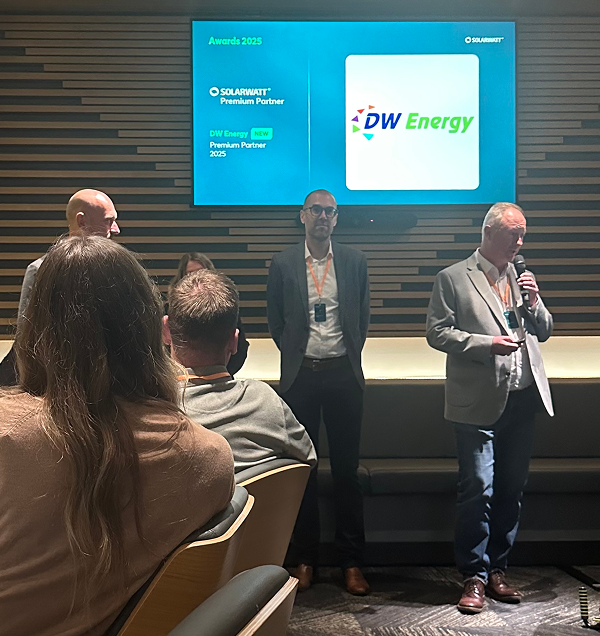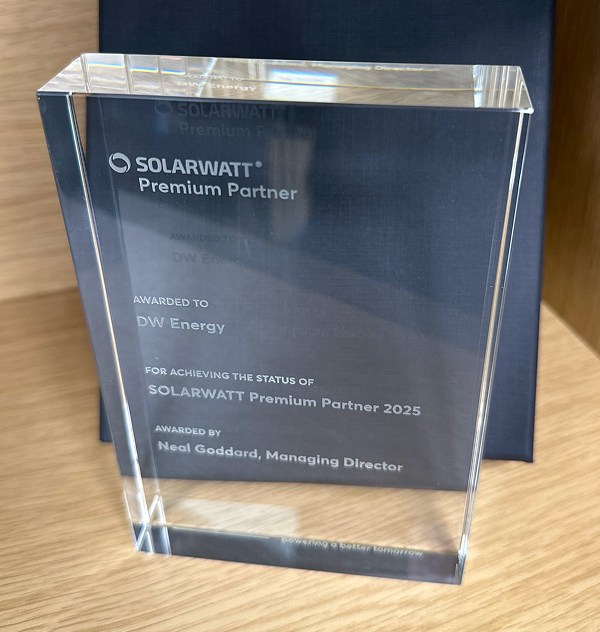.png)
Solar Power in the United Kingdom
A Landmark Evening for UK Solar Innovation
The DW Energy team recently attended the Solarwatt Partner Event at the Gtech Community Stadium — home of Brentford FC — for an evening that brought together some of the most forward-thinking operators in the UK solar industry. Hosted by the SOLARWATT UK & Ireland team, the event combined innovation updates, market insights and genuine collaboration with a partner network that continues to set industry standards.

Key Leadership Insights
Solarwatt’s Managing Director for UK & Ireland, Neal Goddard, welcomed partners alongside special guests Benjamin Frank (CEO, Solarwatt) and Peter Bachmann (Chief Product Officer), who shared a clear, confident view on Solarwatt’s roadmap and the direction of European solar manufacturing.
The session was packed with updates on new technology, sustainability strategy and the evolving expectations around quality and supply-chain transparency.

A Premier League Venue for a Premier-League Brand
The venue choice wasn’t accidental. With Brentford FC now firmly established in the Premier League, it was a fitting backdrop for a brand positioning itself at the top end of the solar sector. Brentford’s Chief Executive, Jon Varney, joined the room to share club insights — a smart crossover between two high-performance, data-driven industries.
DW Energy Recognised as a Solarwatt Premium Partner
The evening also recognised partners delivering exceptional value across the market. We’re proud to say DW Energy was awarded Solarwatt Premium Partner status — a formal marker of a relationship built on trust, engineering quality and shared long-term thinking. For our clients, this accreditation simply reinforces what they already get from us: best-in-class panels, ethical supply-chain standards, and manufacturer-backed expertise powering our installs across homes and businesses in the South East.


A final shout to STIEBEL ELTRON UK LTD— John Felgate and Nick Maddison — for rounding out the agenda and contributing to one of the strongest partner lineups we’ve seen this year.
Looking Ahead: The Next Chapter in Our Partnership
Our partnership with Solarwatt continues to evolve at pace. With glass-glass technology, industry-leading warranties and a sustainability profile that genuinely outperforms the market, Solarwatt is setting the benchmark for what modern solar manufacturing should look like. Being part of that ecosystem — and being recognised within it — is something we take seriously.
Here’s to the next chapter: deeper collaboration, smarter systems, and industry leadership that actually moves the needle.
DW Energy
Delivering the very best in renewable energy solutions






